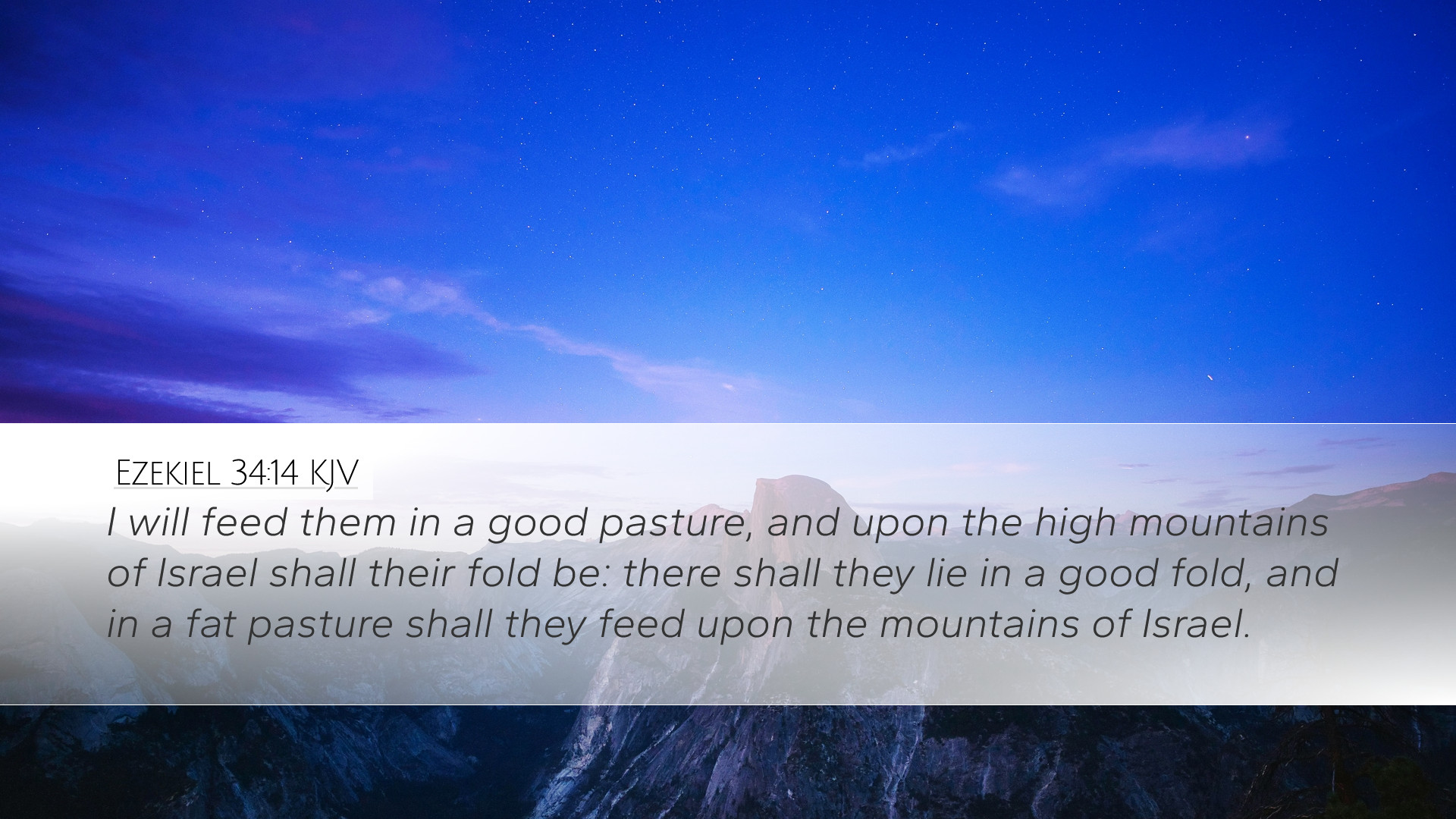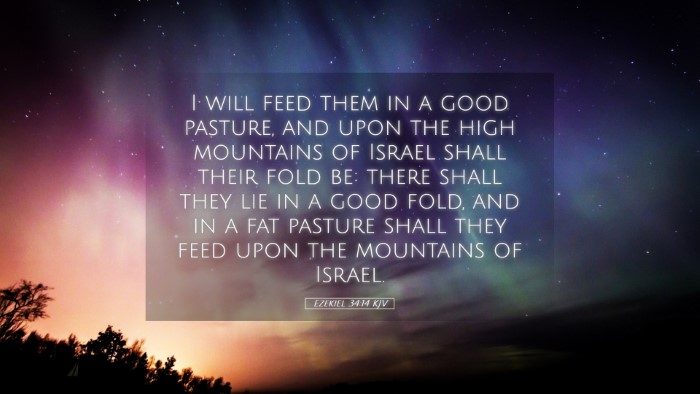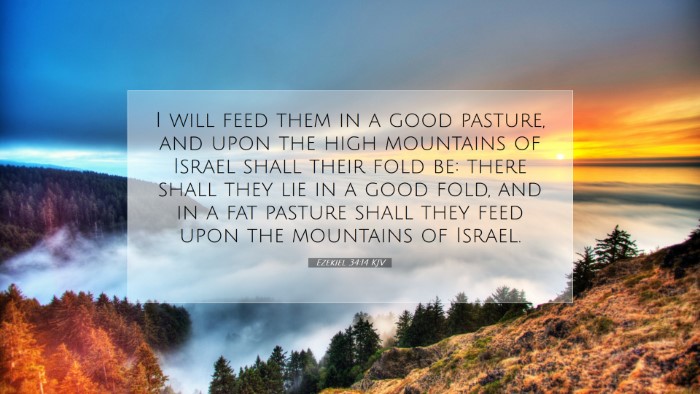Ezekiel 34:14 Commentary
Verse Text: "I will feed them in a good pasture, and upon the high mountains of Israel shall their fold be: there shall they lie in a good fold, and in a fat pasture shall they feed upon the mountains of Israel."
Introduction
The verse Ezekiel 34:14 is profoundly significant within the context of the prophetic messages delivered by Ezekiel. This passage speaks to the care and provision that God promises to His people, metaphorically suggesting the shepherding role of God over Israel. Insights from various public domain commentaries provide a rich tapestry of understanding of this verse, making it relevant for pastors, students, theologians, and Bible scholars.
Contextual Background
The book of Ezekiel, written during a time of exile and desolation for Israel, serves as a call for repentance and a promise of restoration. The chapter address the failures of Israel’s leaders, likened to shepherds who neglected their flock. Ezekiel, through this metaphor, points towards God's commitment to become the Shepherd, leading and nurturing His people.
Commentary Insights
-
Matthew Henry's Commentary
Henry emphasizes the pastoral care of God, noting that “a good pasture” symbolizes spiritual nourishment. The “high mountains of Israel” represent places of safety and abundance. Ezekiel not only expresses the immediate provision of the physical needs of the people but also points to the spiritual abundance that they will receive under God's guidance. Henry reflects on the assurance provided by God in this passage, instilling hope and strength among the people of Israel facing uncertainty.
-
Albert Barnes' Notes
Barnes highlights the promise of restoration and abundance. He interprets "good pasture" as a metaphor for the gospel blessings and the peace found in God’s presence. Barnes remarks that the “high mountains” signify both exalted positions and secure places where the people may find refuge. Additionally, Barnes notes that this verse emphasizes a contrast between the negligent leaders of Israel and God's perfect leadership, reaffirming God's sovereignty and care for His people in troubled times.
-
Adam Clarke's Commentary
Clarke provides an in-depth analysis of the pastoral imagery. He draws attention to the phrase “good fold,” suggesting that the fold represents community and unity among God's people. He asserts that in Christ, the promises of a good pasture are fulfilled, calling attention to the New Testament connections with the Good Shepherd. Clarke connects the physical afflictions experienced by the people with their spiritual hunger, asserting that God’s promise of sustenance addresses both body and soul. He also underscores the importance of recognizing the future hope of restoration that God presents through these prophetic declarations.
Thematic Implications
This verse encapsulates several key themes relevant for theological reflection:
-
Divine Provision:
The imagery of feeding and nurturing speaks to God’s role as provider. This is both a physical and spiritual sustenance and reflects God’s desire for His people to thrive.
-
Leadership Accountability:
Ezekiel's earlier criticisms of human shepherds invoke a sense of accountability for leaders today, challenging them to model their leadership after God's perfect example.
-
Hope and Restoration:
Despite the present circumstances of exile, this passage heralds hope for future restoration—a key concept throughout Ezekiel that resonates in both the Old and New Testaments.
Practical Applications
For pastors and church leaders, this passage serves as an encouragement to embrace the role of shepherding their congregations with diligence and care, reflecting the heart of God. Students and scholars may find a rich ground for exploring themes of leadership, community, and divine provision that are crucial within the biblical narrative.
Conclusion
In summary, Ezekiel 34:14 is a profound assertion of God’s commitment to care for His people through His role as the Good Shepherd. The rich insights from Matthew Henry, Albert Barnes, and Adam Clarke illuminate the nuances of this passage, offering both theological depth and practical wisdom. As the faithful reflect on this verse, the promise of divine nourishment and restorative leadership becomes a guiding principle for both individual and communal faith practices.


